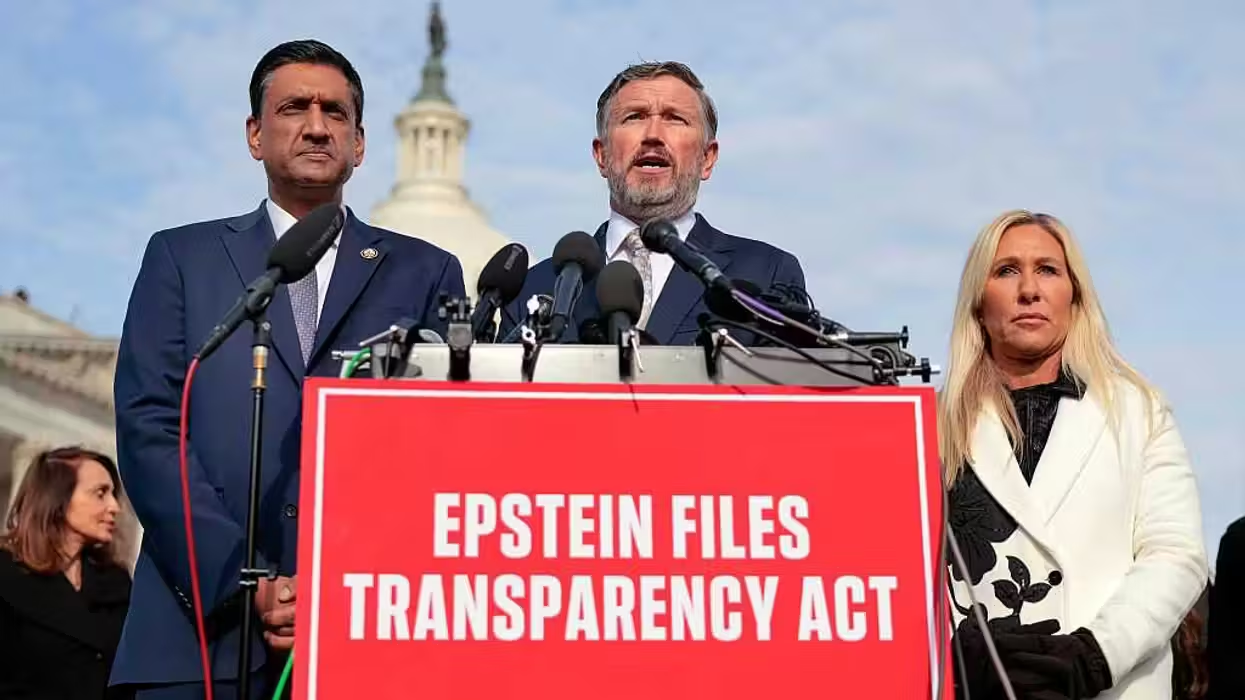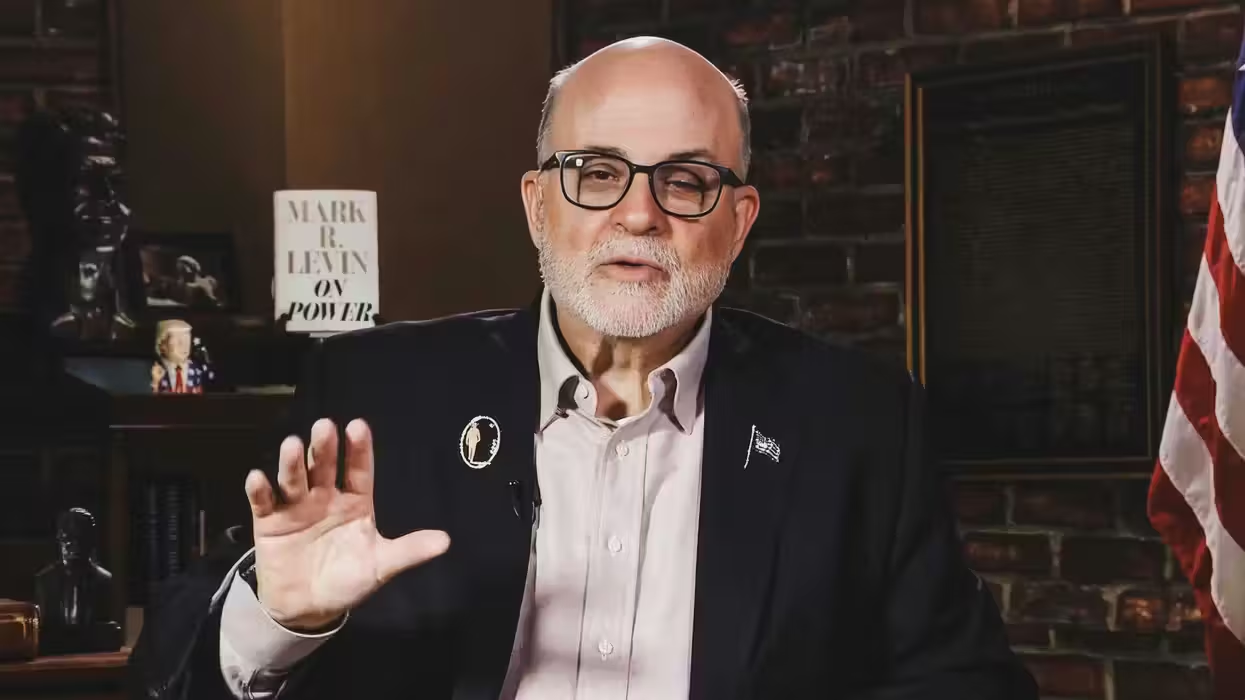WASHINGTON (AP) -- The main thing to know about President Barack Obama's final, $4 trillion budget is that it comes on the same day as the New Hampshire primary, ensuring it gets minimal attention with all the focus on the White House contenders.
The timing cements the impression that Obama realizes a Republican-led Congress is unlikely to embrace his spending priorities. Typically, the budget is released on a Monday, but White House press secretary Josh Earnest says Tuesday's release allowed hard-working administration employees and journalists a chance to watch the Super Bowl.
The 2017 budget for the fiscal year beginning Oct. 1 will combine proposals for new spending on infrastructure, education and combating opioid abuse with tax increases on corporations and wealthy individuals to keep deficits down. This will avoid proposing cuts to popular programs like Medicare, student loans or food stamps.
 In this handout photo provided by The White House, U.S. President Barack Obama signs H.R. 3210, Pay Our Military Act, which provides continuing appropriations for pay and allowances for members of the Armed Forces during any period for which interim or full-year appropriations for FY 2014 are not in effect, in the Oval Office on September 30, 2013 in Washington, DC. If House Republicans do not find common ground with President Obama and Senate Democrats on the federal budget then at midnight large sections of the government will close, hundreds of thousands of workers would be furloughed without pay, and millions more would be asked to work for no pay. (Credit: Getty Images)
In this handout photo provided by The White House, U.S. President Barack Obama signs H.R. 3210, Pay Our Military Act, which provides continuing appropriations for pay and allowances for members of the Armed Forces during any period for which interim or full-year appropriations for FY 2014 are not in effect, in the Oval Office on September 30, 2013 in Washington, DC. If House Republicans do not find common ground with President Obama and Senate Democrats on the federal budget then at midnight large sections of the government will close, hundreds of thousands of workers would be furloughed without pay, and millions more would be asked to work for no pay. (Credit: Getty Images)
The administration has unveiled several proposals on a piecemeal basis leading up to the official rollout.
Things to know:
Wish list
The budget is just a proposal, and the White House gets to assume that it's enacted in its entirety. That means it always contains lots of things that have no chance of ever making their way through Congress - like a $10 per barrel fee on oil to pay for more than $30 billion in various transportation projects, which landed with a thud on Thursday. The same can be said of Obama's plans for $6 billion for job training, including $4 billion over three years to teach computer science.
Other proposals may have more of a shot, including $1 billion over two years to combat heroin and opioid addictions, additional funding to feed low-income children during the summer, when most lose access to free and reduced-price lunches, and additional money for the administration's "moonshot" effort to cure cancer.
"My budget is going to offer more opportunities for Americans to get the education and job training that they need for a good paying job," Obama said on Friday. "It will offer new ideas for benefits and protections that provide folks with a basic sense of security."
 Copies of the U.S. Government budget for Fiscal Year 2012 are stacked up at the U.S. Government Printing Office in Washington, Monday, Feb. 14, 2011.(AP Photo/Alex Brandon)
Copies of the U.S. Government budget for Fiscal Year 2012 are stacked up at the U.S. Government Printing Office in Washington, Monday, Feb. 14, 2011.(AP Photo/Alex Brandon)
Red ink is worse
Believe it or not, last year's $439 billion deficit was actually pretty good even though it required the government to borrow 12 cents of every dollar it spent. That's way down from the record $1.4 trillion deficit, which required borrowing 40 cents of every dollar spent, registered in Obama's first year in office.
But now, the Congressional Budget Office says that last year's tax and spending bill, combined with worsening economic projections, means that deficits will begin a steady march to the $1 trillion mark in a few years. Sooner or later, CBO says, action to curb the deficit is a must, or else it could drag down the economy and lead to a potential European-style fiscal crisis. These problems will be left to Obama's successor since he and GOP leaders have long since given up on working together to get the deficit under control.
Dead on arrival
Hate the cliche, tagged onto the budget of virtually every president, but it has never been truer. In fact, House Speaker Paul Ryan, R-Wis., declared Obama's $10 per barrel of oil tax dead on arrival. Obama's budget is so dead that the Republican chairmen of House and Senate Budget committees issued a statement declaring they wouldn't even bother to hold the requisite day-after hearing to allow White House Budget Office chief Shaun Donovan to go through the motions of defending it.
"Nothing in the president's prior budgets ... has shown that the Obama administration has any real interest in actually solving our fiscal challenges," chided House Budget Chair Tom Price, R-Ga.
House Minority Leader Nancy Pelosi, D-Calif., called the Republican chairmen's actions "insulting" and said their "contemptuous attitude is unworthy of the U.S. Congress and the American people."
Real struggle
After the budget's brief time in the spotlight and the GOP's countermeasure, the real work begins: Action on the 12 individual bills to finance the government agencies and departments. Those bills divvy up the approximately one-third of the budget passed each year at Congress' discretion, including funds for the Pentagon and the day-to-day operations of domestic agencies.
The process has gotten way off kilter in recent years, consumed by brinksmanship and hard feelings, but Ryan and Senate Majority Leader Mitch McConnell, R-Ky., say they want to get it back on track. Finishing the bills before the election is a heavy lift, and if Republicans win the presidency in November, they could stick to a short-term extension and wait for the new president to finish the bills.
–

 In this handout photo provided by The White House, U.S. President Barack Obama signs H.R. 3210, Pay Our Military Act, which provides continuing appropriations for pay and allowances for members of the Armed Forces during any period for which interim or full-year appropriations for FY 2014 are not in effect, in the Oval Office on September 30, 2013 in Washington, DC. If House Republicans do not find common ground with President Obama and Senate Democrats on the federal budget then at midnight large sections of the government will close, hundreds of thousands of workers would be furloughed without pay, and millions more would be asked to work for no pay. (Credit: Getty Images)
In this handout photo provided by The White House, U.S. President Barack Obama signs H.R. 3210, Pay Our Military Act, which provides continuing appropriations for pay and allowances for members of the Armed Forces during any period for which interim or full-year appropriations for FY 2014 are not in effect, in the Oval Office on September 30, 2013 in Washington, DC. If House Republicans do not find common ground with President Obama and Senate Democrats on the federal budget then at midnight large sections of the government will close, hundreds of thousands of workers would be furloughed without pay, and millions more would be asked to work for no pay. (Credit: Getty Images)






